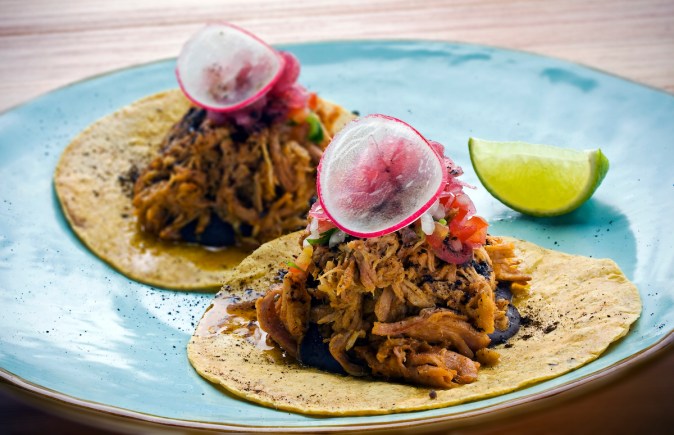In January 2016, Professor Steven Alvarez of the University of Kentucky taught a course titled Taco Literacy: Public Advocacy and Mexican Food in the US South. The purpose, he told Munchies at the time, was to “explore the history of networks of Mexican and Mexican-American food in Kentucky by writing about recipes and rhetorics that deal with things such as authenticity, local variations and preparations, and how food literacies situate different spaces, identity, and forms of knowledge.”
What Alvarez didn’t know at the time, however, was that the course would follow him to Queens. The initial Munchies story made him a foodways superstar. After going viral, newspapers in England, Spain, Mexico, and all across the United States picked up his story. He received invitations to lecture across the country on the South’s Mexican food scene, including a Powerpoint presentation about a pioneering Atlanta Latino mall at last year’s prestigious Southern Foodways Symposium at the University of Mississippi.
By then, Alvarez had already moved up the academic ranks to his current position as assistant English professor at St. John’s University in Queens. It was a homecoming of sorts for the Arizona native, who earned his doctorate at City University of New York, whose wife hails from the borough, and who wrote a great book about an after-schools homework program for Mexican immigrants and their children in the city.
This month, Alvarez restarts his Taco Literacy course as a senior seminar at St. John’s – easily the best class of 2018. And the profe knows his stuff. Last year, he accompanied me and legendary food critic Robert Sietsema on a Mexican food tour of Bushwick and Jackson Heights, where he lives. Every time I visit New York, I make time to hang with Alvarez and try his latest discoveries – last one was a steaming cup of champurrado and a spicy tamal bought from a tamalera off the 82nd Street and Roosevelt Avenue subway stop.

iStock/Getty Images Plus
It’s part of what Alvarez calls the “politics of the panza” that goes behind his course. “[We look] deeper into how food relates to activism and local communities,” he tells me. His inaugural class of 11 students will do research “investigating the social, cultural, economic, and symbolic practices of producing and consuming food as a prism for understanding demographic change and social issues facing Mexican immigrants and Mexican Americans.”
New York seems like an unlikely place to study tacos, at least to Mexican-Americans across the country who still think that the city’s Latinos are mostly Puerto Ricans and Dominicans. But Mexicans have been New York’s fastest-growing ethnic group since at least 2003, and they’re projected to become the city’s second-largest Latino group by 2036. There are so many Mexicans from the state of Puebla that they call their new home Puebla York. That demographic change has “shaped how we understand the restaurant industry, labor, migration, and community sustainability” in NYC, Alvarez says.
The professor will have his students write about their connection to Mexican food (and post the most mouth-watering finds on the course’s Instagram page) by “researching the production of ingredients in three Mexican dishes.” Eventually, he wants them to see how something as seemingly simple as a taco is actually a transnational creation that involves, history, economics, politics, gender – and all of this before even tasting one! “My hope,” Alvarez says, “is that students will gain methods for considering the dignity of Mexican families, communities, and lived experience through foodways. And to realize when folks talk about building walls, well, walls can’t stop food – or languages, or people.”
Given Queens is one of the most diverse areas in the world (and his wife is Colombian), can a “Pernil Literacy” course be next? “Funny you should mention that,” he says with a laugh, mentioning a “poblano-run pizza joint” in Jackson Heights where they “slow cook the pernil in a pizza oven, and they’ll top your slice with pernil, put it in a taco, or sell it por libra como quieres.” Alvarez wants to build on his course and create something like the Southern Foodways Alliance to study the “incredible foodways” of the borough.
“Queens,” he concluded, “is the future, y’all.”




